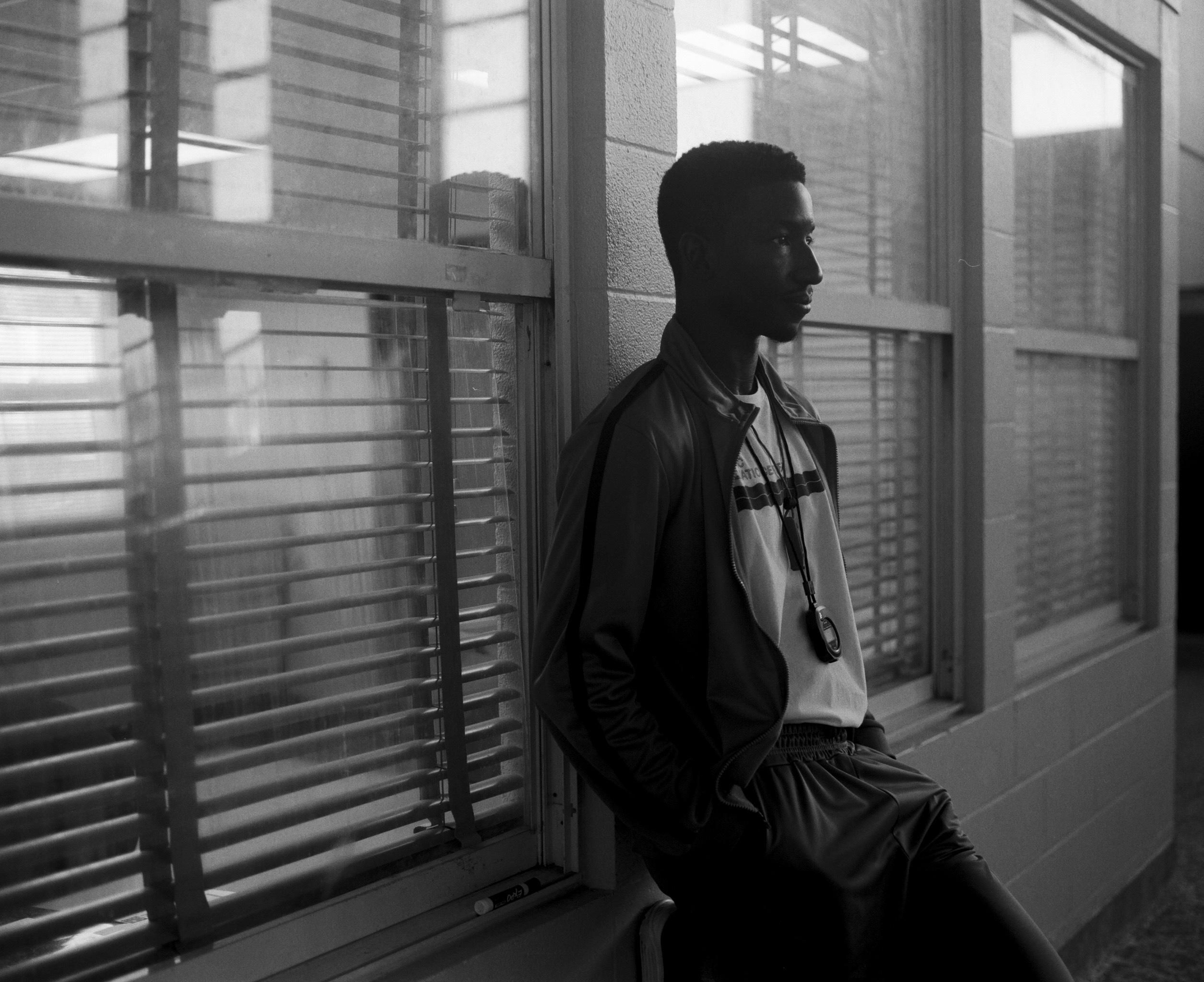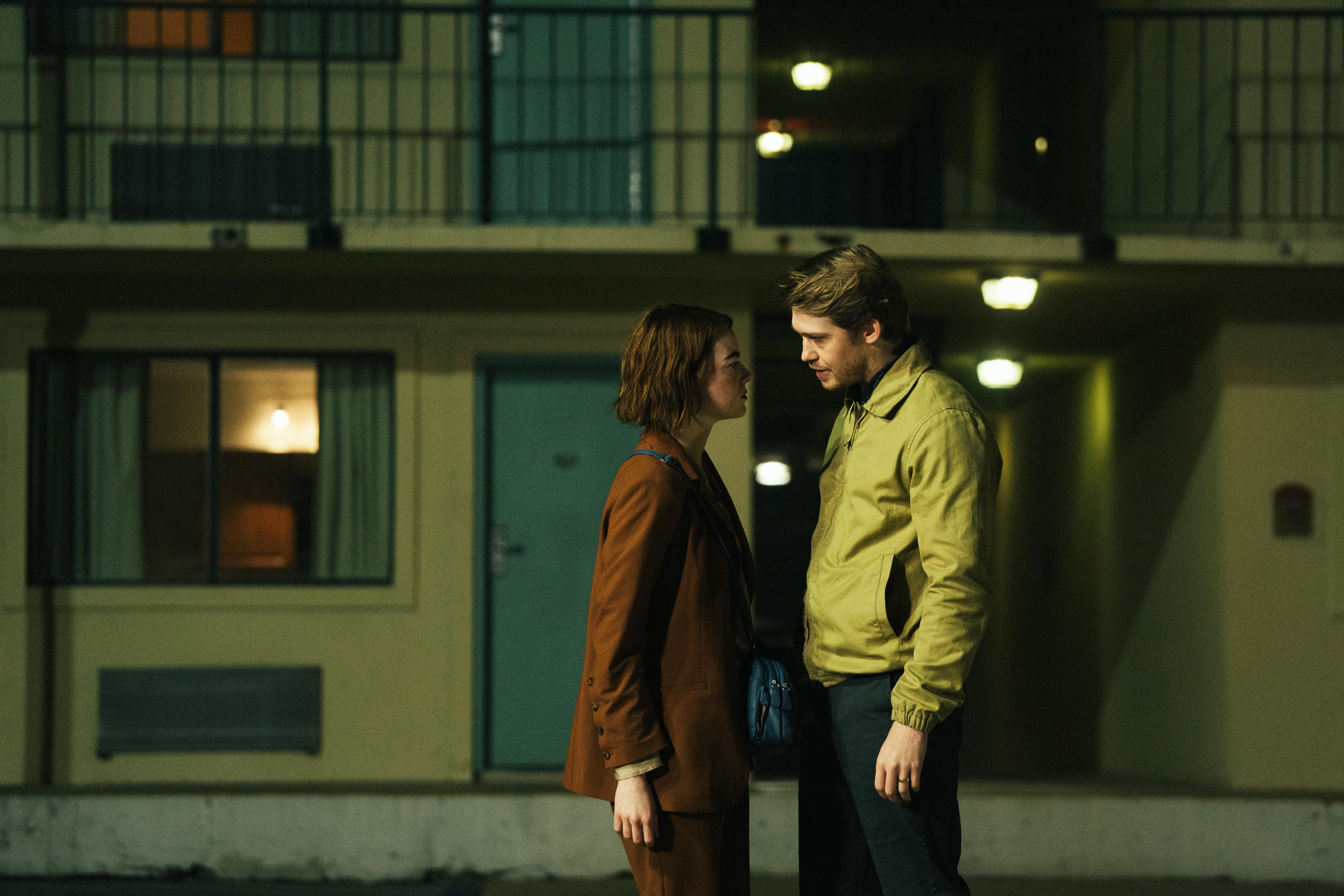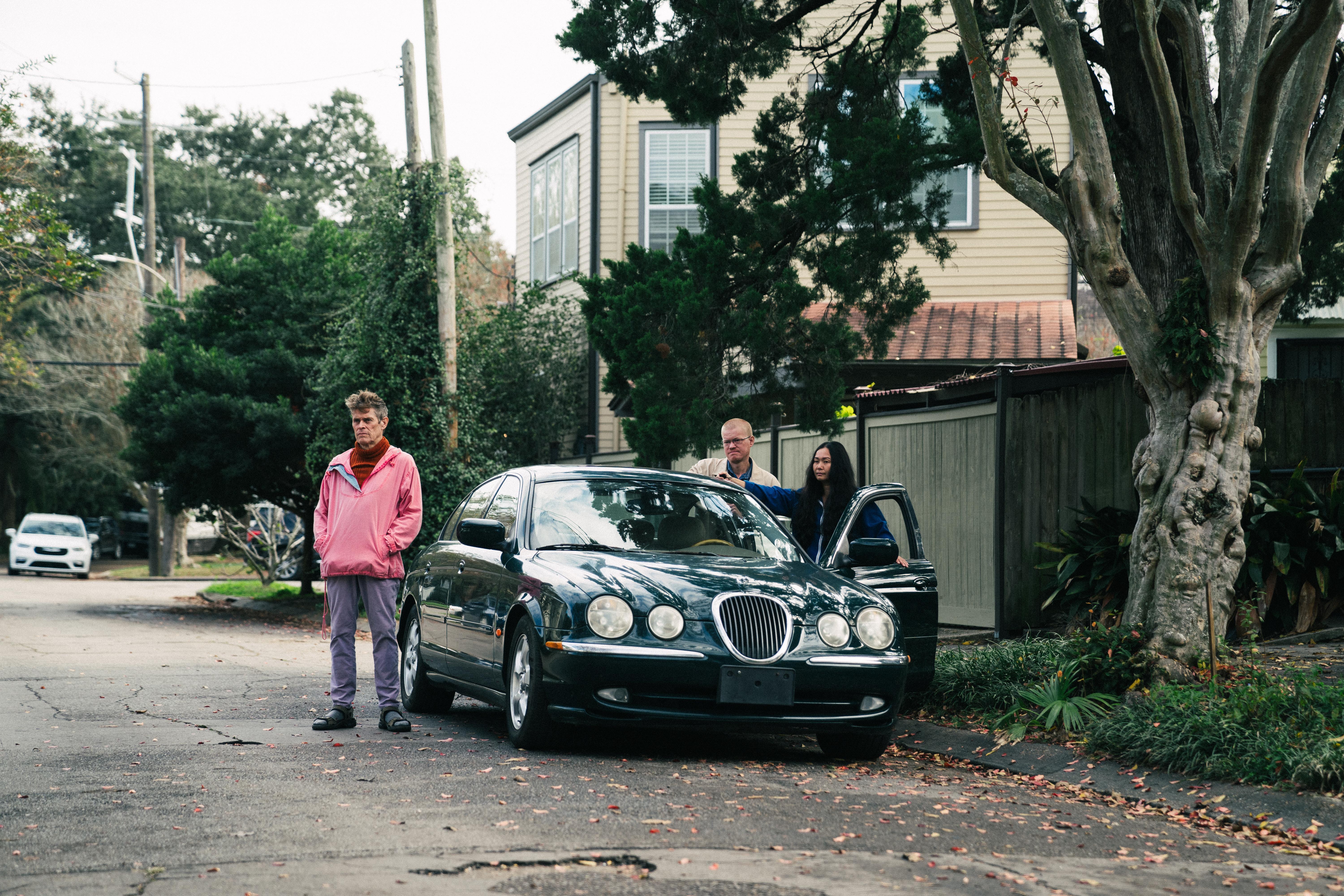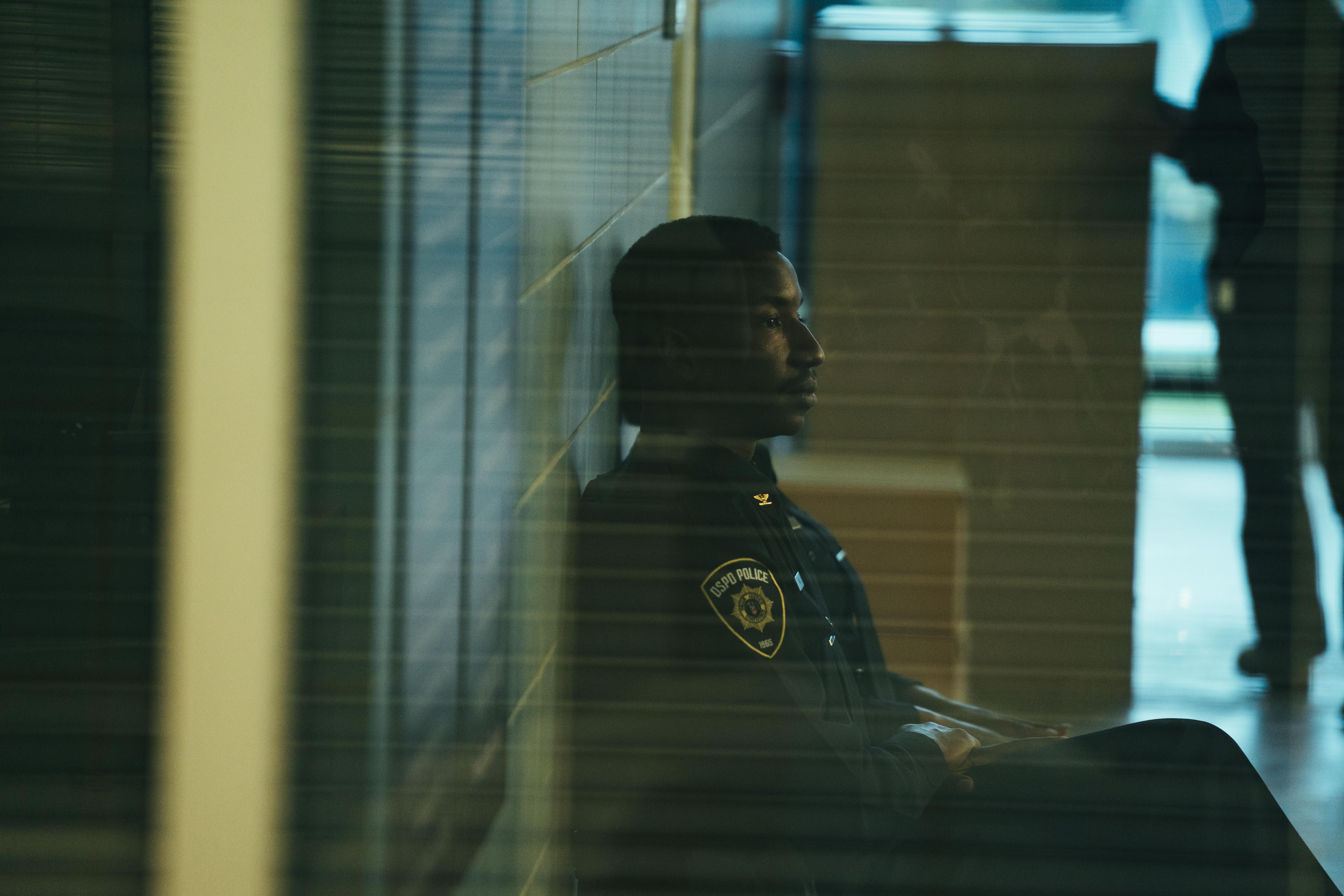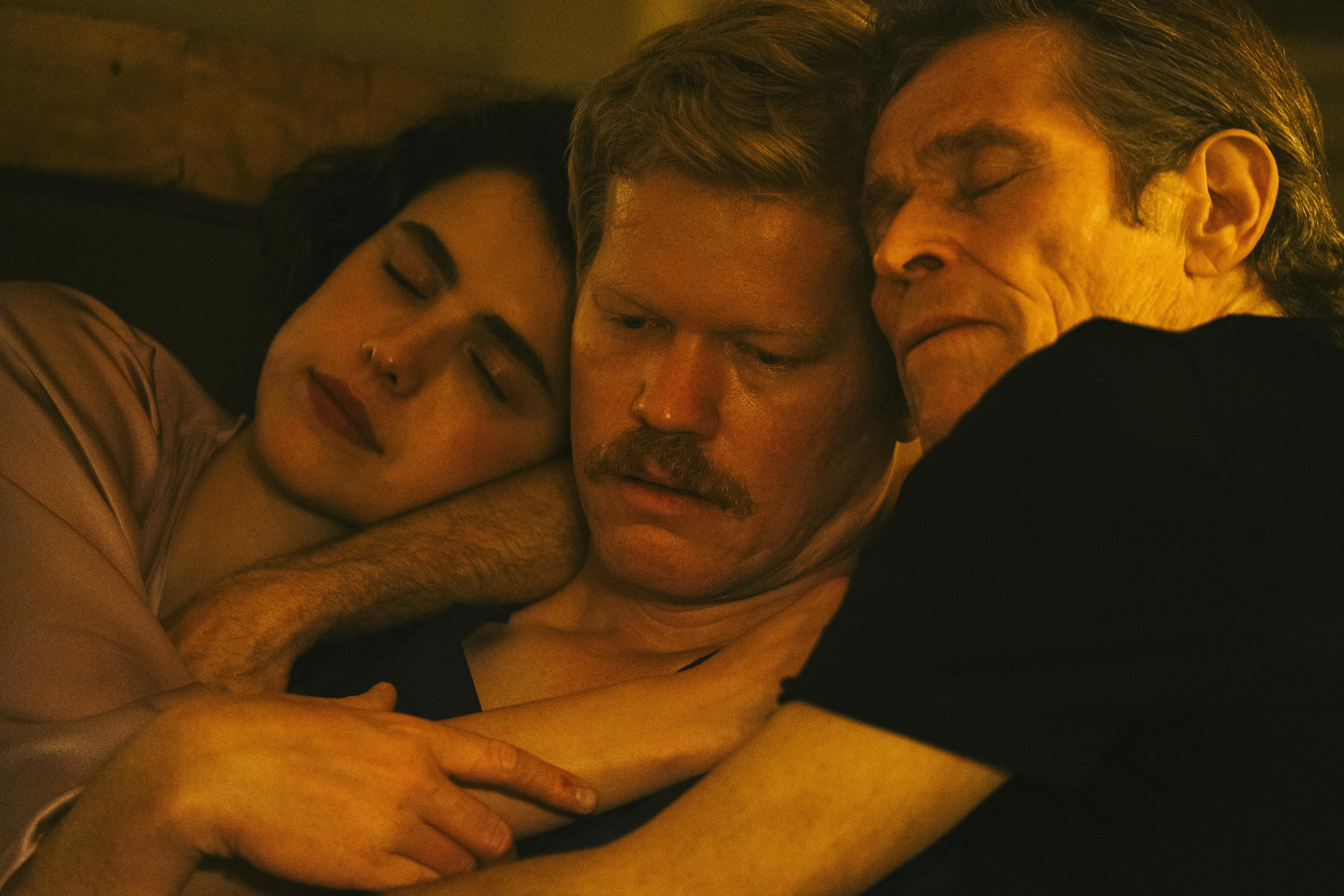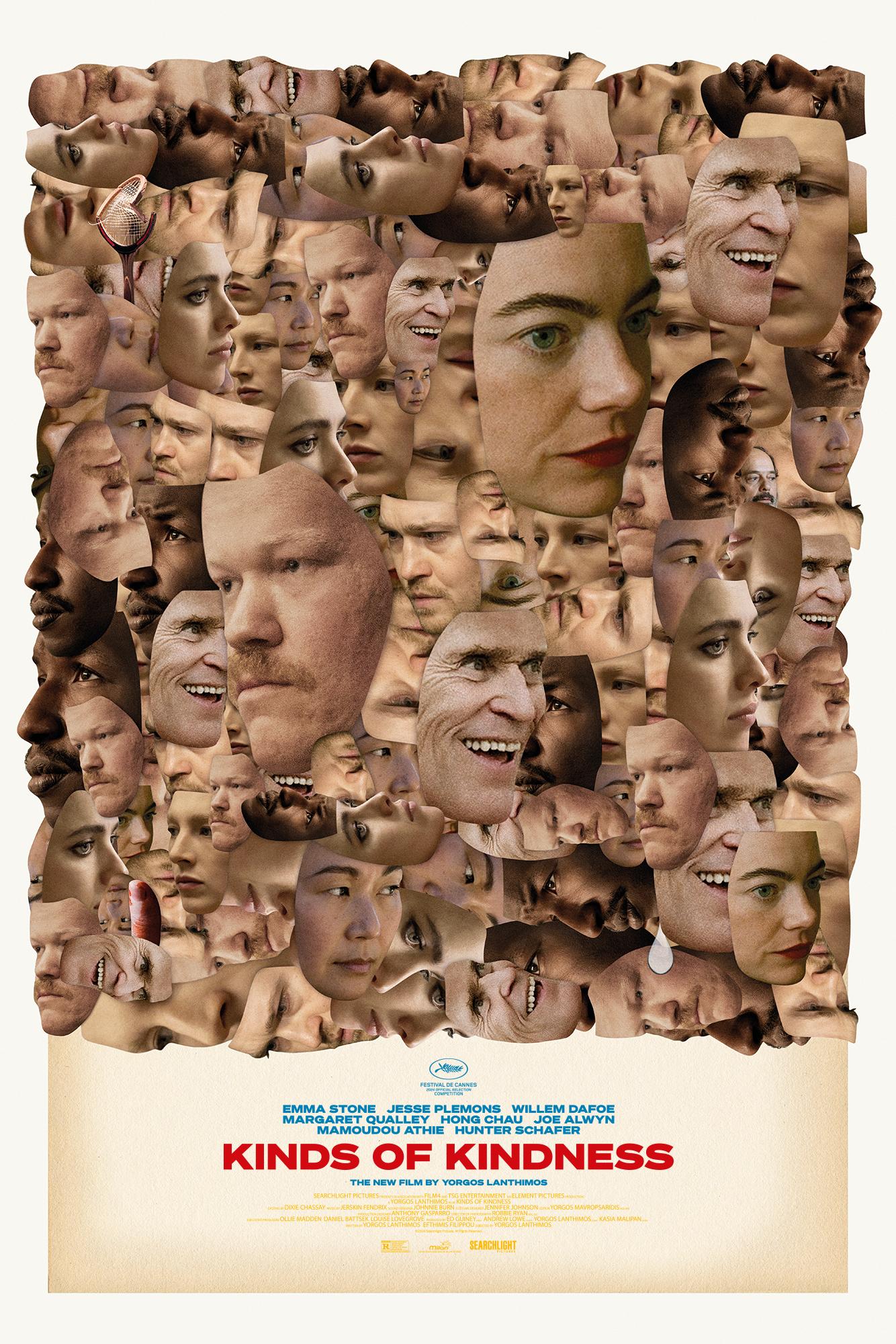Synopsis
In the enigmatic triptych fable, "Kinds of Kindness," viewers are invited into a captivating exploration of control, identity, and strange connections. This film weaves together three intriguing tales, each reflecting the eerie, fickle nature of human relationships.
The first story unfolds with Robert Fletcher, a man ensnared in an oppressive web woven by his boss and lover, Raymond. With every facet of Robert's existence dictated, from personal to professional, he faces a reckless demand that twists his life further into chaos. As his world crumbles, his path to redemption carries unexpected consequences and an unsettling revelation of loyalty and autonomy.
The second narrative pivots to Daniel, a police officer grappling with the mysterious return of his wife, Liz, thought lost at sea. As Liz's unfamiliar behavior perplexes him, signs of a darker undercurrent surface, pushing Daniel into a spiral of suspicion and self-doubt. The film delves into themes of trust and the unnerving shifts in reality, keenly highlighting the struggle between love and fear.
The final tale follows Emily and Andrew, members of a peculiar community led by the mystical Omi and Aka. They embark on an unusual quest to find a woman possessing the power to raise the dead, but their journey is riddled with betrayal, revelation, and death. The intertwining destinies of longed-for resurrection and devastating loss unravel as their pursuit leads them to confront their most profound desires and sacrifices.
As these stories loosely interconnect, they echo a profound exploration of how kindness and cruelty intertwine in ways both unsettling and thought-provoking. "Kinds of Kindness" threads a compelling tapestry that questions the dynamics of power, the resilience of the human spirit, and how far one might go to reclaim agency or seek redemption. Each story carries its own weight and mystery, creating a gripping narrative that resonates long after the credits roll.
Argument
In the intricate tapestry of narratives presented in the triptych fable, "Kinds of Kindness," each story serves as a thematic pillar, challenging the perception of benevolence and control. The first tale, "The Death of R.M.F.," intricately weaves the narrative of through the life of Robert Fletcher, a man entrenched in the oppressive grip of his manipulative boss and lover, Raymond. In this story, Raymond not only commands Robert’s professional life but dictates his personal choices, including his marital alliance with Sarah, spotlighting the extent to which power can overshadow personal agency. When Robert is tasked with the barbaric mission of crashing his car to murder a man known only by his initials, "R.M.F.," the story starkly highlights the degradation of autonomy. Robert’s trepidation and reluctance reveal his burgeoning conflict, yet Raymond’s unwavering dominance culminates in Robert's dismissal when he fails to comply. This moment liberates Robert, albeit forcibly, but plunges him into chaos and desperation as his world crumbles, articulated poignantly by the loss of a cherished, albeit frangible, token from Raymond—a shattered John McEnroe tennis racquet.
As Robert tumbles into despair, confessing to Sarah about Raymond's sinister manipulations during their marriage, his admission becomes a pivotal turning point for both characters. Sarah’s departure marks a severance from the toxic control Raymond exerted, on both tangible and emotional levels, reflecting broader themes of captivity and liberation. In a bid to claw back his lost dignity, Robert encounters Rita—another victim of Raymond’s tyrannical grasp—only to find his path intersecting once more with violence and guilt, as Rita’s ill-fated attempt to murder R.M.F. leaves him in critical condition. The moral vacuum expands as Robert’s desperation drives him to ultimate violence, executing R.M.F. in a grievous attack driven by a misguided sense of surrogate identity. Intriguingly, this act, conducted beneath a veneer of remorse, earns Robert a remorseful embrace from Raymond, as though fulfilling a twisted expectation, underscoring the cyclical entrapment within the fabric of tyranny and fractured morality.
The second story, "R.M.F. Is Flying," plunges the audience into a realm where reality wavers uncertainly, reflecting the volatility of bereavement and mistrust. At its core is the protagonist, Daniel, a police officer engulfed in sorrow over his wife Liz’s mysterious disappearance and miraculous return. Her incomprehensible transformation, including altered preferences and a physical mismatch even with her shoes, compound his suspicion in an unsettling commentary on identity and perception. As Liz reveals her pregnancy—a potential restoration of their union—the revelation becomes an explosive catalyst for Daniel’s instability. His resultant paranoia, marked by a violent traffic stop incident, precipitates his breakdown and discharge from the force, a vivid representation of deteriorating sanity.
Liz’s surreal dream of a canine-dominated world reflects a metaphorical captivity, drawing a parallel to her waking reality, where she is ensnared by Daniel's irrational fears and demands. Her compliance extends grotesquely to self-harm under Daniel’s frenzied delusions of control. Her capacity for submission is agonizingly illustrated as she mutilates herself, furthering the film’s exploration of autonomy and the grotesque lengths to which perceived love can twist back upon itself. This crescendo of madness reaches its nadir when Liz dies after being coerced into removing her liver, without true resolution or redemption, leaving only the haunting apparition of another Liz in her wake. Over archival footage of anthropomorphized dogs, this tableau reinforces the film’s thematic intersection of surrealism and identity, underlining a world where reality is grotesquely distorted, yet laced with an unsettling undercurrent of longing.
In the final story, "R.M.F. Eats a Sandwich," themes of manipulation and elusive mastery over death rise to the forefront within the confines of a sex cult led by the enigmatic figures of Omi and Aka. Here, Emily and Andrew's quest for a woman possessing the power to resurrect the dead becomes a lens for examining desperation and the human compulsion to explore boundaries beyond mortality. Engulfed in ritualistic fanaticism, Emily covertly nurtures ties to her estranged family, reflecting the struggle for familial connections amidst doctrinal demands. Their subsequent encounters with potential candidates for resurrection, including the deceased Anna, highlight the absurdity cloaked within their fervor, while Emily's prescient dream about the mythical candidate foreshadows the chilling intersection of predetermined fate and blind pursuit.
As Emily grapples with personal betrayal and violation, with her ex-husband Joseph orchestrating a vile assault rooted in deviation rather than devotion, the tale underscores the brutality that can accompany religious manipulations of power. Emily's return to the cult after Rebecca, another woman tainted by prophecy, commits suicide, stands as a somber narrative turn—fate demanding morbid necessity. Yet, in a climactic twist of irony, Emily discovers the sought-after power within Ruth, a veterinarian whose ability to revive a dog transforms her into a vessel of hope. Emily's reckless drive back to the cult curdles into tragedy, with Ruth’s death in a car crash illustrating the futility and destruction within obsessive quests. The story closes poignantly on a light note with R.M.F.’s mundane act of eating a sandwich, juxtaposed against the backdrop of resurrection's macabre machinery, encapsulating humanity’s perpetual dance with the mystique of power beyond life’s veil and the paradoxical simplicity of each breath.
Cast

Emma Stone
Rita

Jesse Plemons
Robert

James Franco
Raymond

Margaret Qualley
Vivian

Yorgos Stefanakos
R.M.F.

Fadeke Adeola
Paramedic

Hong Chau
Sarah

Tessa Bourgeois
Louise

Kencil Mejia
Cheval Barman

Mamoudou Athie
Will

Joe Alwyn
Collectibles Appraiser

Thaddeus Burbank
Collectibles Appraiser 2

Suzanne Stone
Mr. Smith's Secretary

Jerskin Fendrix
Cheval Bar Piano Player

Nikki Chamberlin
Recoiling Woman in Cheval Bar

Christian M. Letellier
Male Nurse

Lawrence Johnson
Police Chief

Lindsey G. Smith
Female Police Officer
Multimedia



